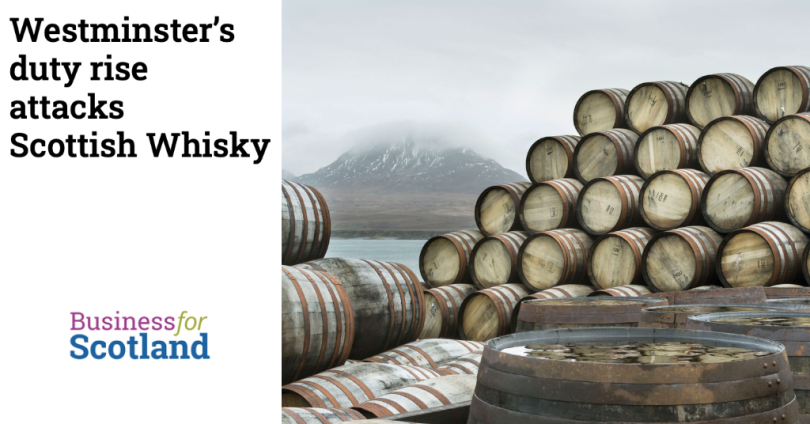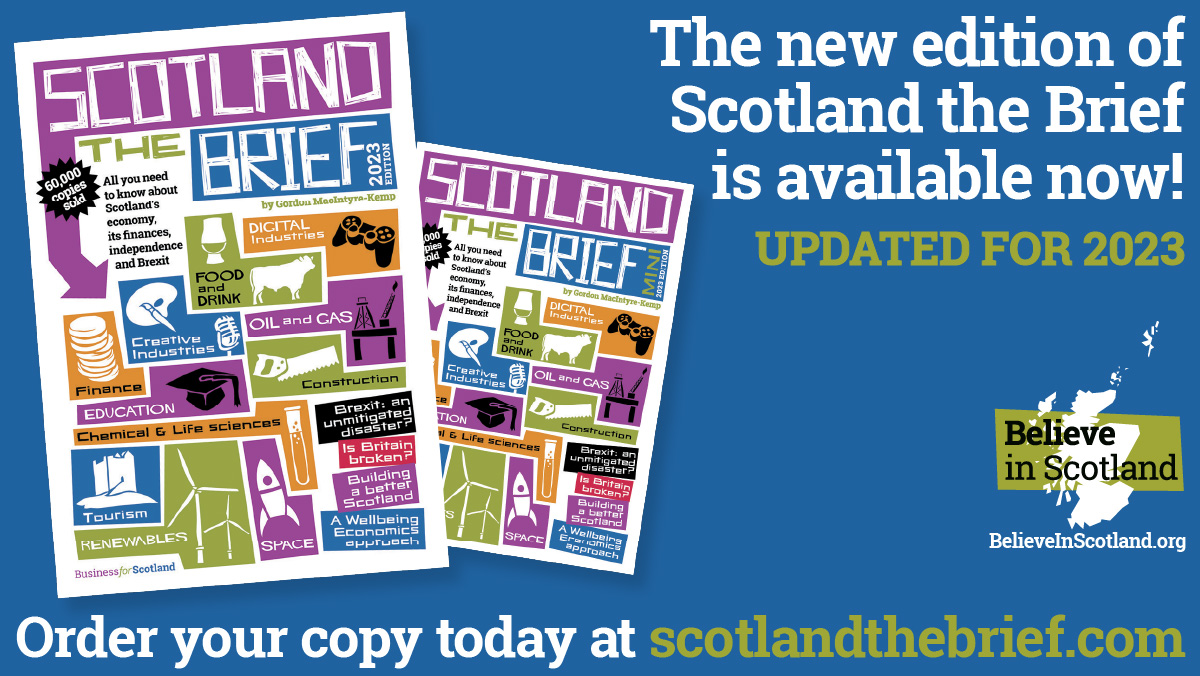Whisky and drinks production in general is a vital industry for the Scottish economy. Distilling provides thousands of jobs and contributes millions to Scotland, and the wider UK’s, exports. Recently, Rishi Sunak has announced that the UK is changing how it classifies duty payments on alcoholic beverages, which will have a significant impact on the whisky industry, with businesses arguing that the effects could be ‘catastrophic’. In this article, we will review how whisky and other distilling industries contribute to the Scottish economy and the full scale of the impact of these changes to businesses in Scotland.
Scotland’s Distilling Industry
The drinks industry in Scotland is a major sector – Scotland is a world leader not just for whisky but also for production of other spirits such as gin and breweries for craft beers. Scotch whisky alone contributes over £5.5 billion to the UK economy, with beverages making up around three quarters of Scotland’s food and drinks exports. It’s not just whisky though. Scotland also produces around 70% of the UK’s gin, with the manufacturing of major names such as Gordons, Tanqueray and Hendricks, as well as popular smaller distilleries such as Edinburgh Gin, Eden Mill and Caorunn, based across the country.
The distilling industry does not just provide revenue – it’s also a big employer. In 2019, nine out of every ten distilling jobs were located in Scotland and this is spread between urban and rural areas, with major roles in both cities like Glasgow and Edinburgh as well as the Highlands and Moray. The number of breweries, especially of craft beer, have also increased in Scotland, particularly since the beginning of the 2010s, currently at 132 compared to only 40 in the year 2010 which is an increase of 230%.
So how does duty on alcohol produced in Scotland currently work? Up until 1st August 2023, the UK system had been guided by EU regulations on alcohol taxation. This meant that beer and spirits were taxed based on alcohol content, while cider and wine were taxed based on the volume sold. This had led to criticism of the health implications of such a tax policy, where manufacturers could produce strong cider of around 8% ABV for a cheap price point to consumers. The Conservative government had, since 2010, introduced freezes on duties which meant that in real terms, beer duty was 19% lower, cider and spirits duty 12% lower and wine duty 3% lower than in 2012. It was clear that some changes needed to be made and Brexit gave the UK Government a useful opportunity for a complete overhaul.
The ‘Brexit Pubs Guarantee’
The proposed reforms were set to ‘simplify’ the duties system, with the Sunak cabinet spying an opportunity to cater specifically to the English pub industry at the same time. Now, all drinks produced would be taxed based on their alcohol content, rather than being split into categories of wine, beer, spirits and ciders. Any products with an ABV higher than 8% are now taxed at the same rate. This meant that costs for whisky and other spirits as well as wine would increase. In the cases of beer and ciders, draught products duties would decrease but the price of bottled products would go up. Sunak framed this as a ‘Brexit Pub Guarantee’, perhaps trying to invoke Nigel Farage to appease Middle England. The system is designed to incentivise people going out to drink in pubs, rather than stay drinking at home. There is an argument that drinking in a social setting such as pubs causes less harm than drinking at home, with the UK faced with both an increase in binge drinking at home and the impact of the pandemic and cost of living crisis on hospitality. The Tories argue that this provides a trifecta of benefits: to manufacturers of draught beer and cider, to the hospitality industry and to the health of those who drink alcohol – killing three birds with one stone as it were.
These proposed benefits will not appear for either consumers, venues or Scottish producers. For one thing, increasing the price of drinking at home does not reduce the cost of going out to drink. Taxing based on simply the alcohol content of drinks does not necessarily stop people from drinking – three pints of beer has the same alcohol content as around seven whiskies for example. A different proposed solution from the Social Market Foundation proposed increasing duties for drinks sold in the ‘off-trade’ (supermarkets etc.) so that they were above the ‘on-trade’ (bars, pubs, restaurants). This tackles the problem of binge drinking at home directly, rather than in the roundabout way of taxing alcohol content. This proposal was also supported by the Scottish Licensed Trade Association, who argue that simply reducing duties does not necessarily benefit venues, in particular smaller ones. The cost is more likely to be borne by the consumer, with bigger pub companies such as Wetherspoons being able to negotiate price cuts if need be. Therefore, two of Sunak’s proposed benefits are unclear and the other is limited only to big business.
The Impact in Scotland
These changes are also bound to have a negative impact on distilleries in Scotland. The total whisky duty is set to increase by 10.1%, which is the highest rise in 40 years. In context, taxation per bottle is predicted to increase from 70% to 75%. For gin, the total taxation on bottles is set to rise by 90p. This is also a much larger increase than the corresponding decrease of 11p for draught beer served in restaurants and pubs.
Whisky manufacturers in Scotland are not happy with the decision. They say that the Conservatives should honour the promise they made in their 2019 manifesto to support the Scottish whisky industry in its stance on taxation. These businesses are not eligible for any additional or transitional support either, as this is limited to drinks below an ABV volume of 8%, less than a quarter of the alcohol content of whisky and most other full-strength spirits like gin.
In 1725, the UK Government at the time introduced a Malt Tax to Scotland to plug the gap that the War of Spanish Succession had left in its finances. Once again, Scotland’s whisky industry is being used to offset Westminster’s financial incompetence. These reforms made by the Tory government with the facade of helping everyone instead only help big businesses, with the veneer of providing ‘Brexit bonuses’ to pubs. While reform to the alcohol industry’s duty scheme could be welcomed both by producers and health officials in Scotland, it is once again ignored for policies that talk big but hurt consumers and small producers alike.








